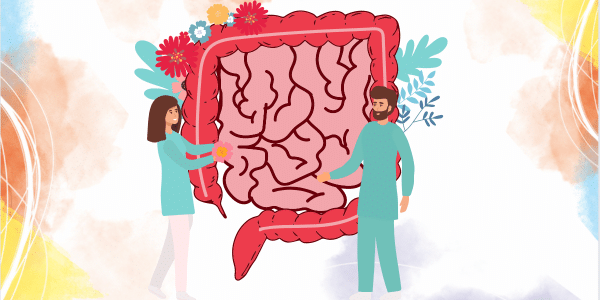Many of my students have a hard time saying no.
Perhaps this is you, too…
As soon as the no rolls out of their mouth, they collapse, overwhelmed with guilt.
This feeling is so horrible that they avoid putting boundaries in place altogether, which can leave their system exposed.
This doesn’t only have an emotional or psychological impact, it has a physiological impact.
When our system detects danger, naturally, the body braces to protect us from danger, and this includes restricting digestion. Feeling unprotected creates more alertness in the system, and when that’s chronic, the sympathetic system – our fight and flight healthy response – can stay active and work overtime.
A part of this cascade is the restriction of digestion, and the proper secretion of stomach acid and digestive enzymes.
Whether it’s a boss that has impossible demands, a controlling family member, or the volunteer committee at your church, when you don’t say no your body continues to sense the presence of a threat and tries to protect you, even when on the surface you seem to be dealing OK with the complex situation.
If you’ve been reading my work for a while, you know that digesting your food when you are not feeling safe is really challenging, so no wonder that lack of boundaries, anxiety, worry and issues with digestion go hand in hand.
But why do we feel so much guilt when we want to do what’s right for ourselves?
Feeling guilt when you do what is right for yourself, when you stand up for yourself, when you allow your authentic self to shine through, is actually very common.
In nervous system work we look at this guilt as a part of an expansion/contraction cycle. Saying no is the expansion in this case, and shrinking and collapsing under the weight of guilt is a contraction. Yet, this contraction is a good thing. It’s a sign of growth.
You may wonder how can something that feels so darn awful be a good sign.
In NARM (NeuroAffective Relational Model) my teacher Dr Heller speaks about “the guardians at the gate” – shame and guilt. In NARM we look at these two emotions not so much as fixed states, but as a process.
A process that signals the movement away from what is comfortable, from our established attachment, into our own individual expression.
See, when we are little people, we need to stay in connection with our caregivers in order to survive. This is deeply rooted in our survival blueprint, so we learn early on not to show our true selves in order to please our parents and other adults. The thought that we could be displeasing or rejected is so terrible, that the system puts a guard at the gate of expression, so that every time we want to be ourselves, we are stricken by a horrible emotion (guilt, shame).
It’s all well and good if you’ve actually done something wrong….but in the case of a cycle of expansion and contraction – doing something beneficial and caring for yourself and immediately after – collapsing – it’s not about having done something wrong, its about feeling bad being yourself.
Even though this is a very young habit, this way of relating often stays cemented into our relational field long after childhood. It can make self-care and doing what’s in our best interest incredibly hard.
Just imagine that every time someone wants your time, attention, energy and resources you feel obliged to give it to them…leaving nothing for yourself. Your body can get so distressed by this pattern that you may see multiple systems suffer.
Digestion is the most common area to alarm us that our boundaries have been breached, but my students often also have issues with sleep, autoimmune disorders, and nagging relentless migraines.
It all makes sense if the body stays alert and feels attacked. It all makes sense if self-protection evokes feelings of guilt.
Remember this. When you feel guilt after establishing a boundary it doesn’t mean you’re wrong or that you’ve done something inappropriate.
Most of the time it means you are moving into the territory of self-support and you are no longer willing to cut yourself in pieces to fit yourself into the box that someone else calls relationship.
The next time guilt and shame visit, greet them like the guardians at the gate of your greatness, knowing full well that they are just messengers from the past.
Give your body the gift of self-protection and watch it relax and remember that healthy digestion and heathy boundaries go hand in hand.


Leave a Reply